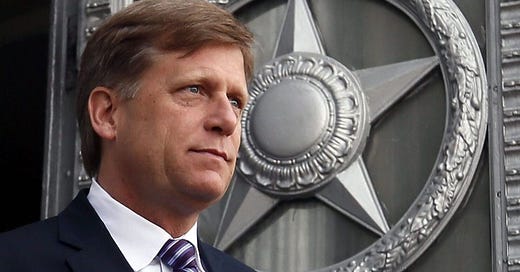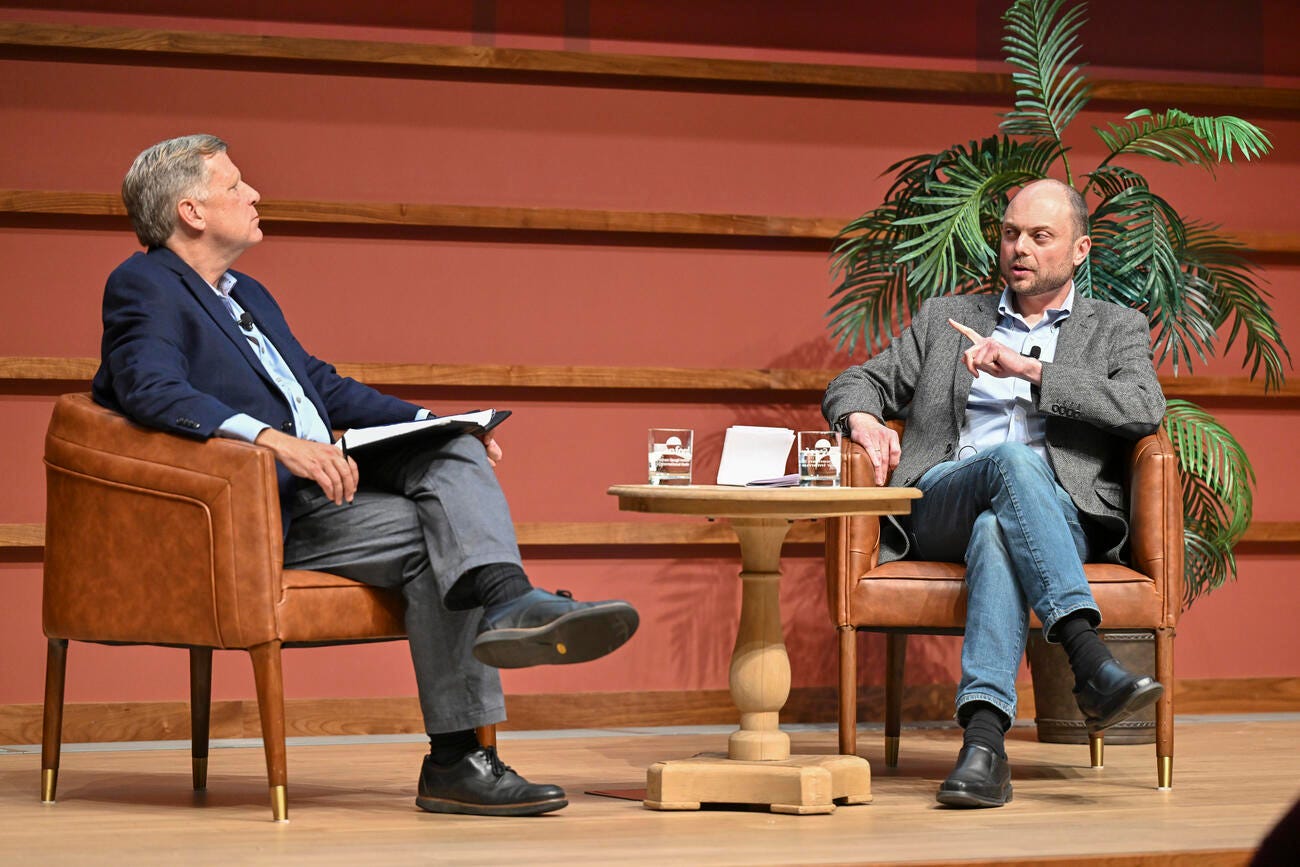Dear Friends and Colleagues,
Thank you to those who joined the live “Ask Me Anything” session on Wednesday! It was a terrific discussion. I have learned a lot from your questions. I hope to hold many similar sessions in the new year!
As you know by now, since I left the government in 2014, I have been writing a monthly newsletter sharing my activities and publications. Here is the one I wrote for November and December 2024! As always, I welcome your feedback!
Every November, Stanford hosts a “Democracy Day” to encourage civic engagement and meaningful political dialogue. This day is an academic holiday; there are no classes, and students are encouraged to spend time engaging with related events and get out to vote. This year’s Democracy Day took place on Election Day. As part of the university-wide programming, my colleague Steve Pifer (former U.S. Ambassador to Ukraine) and I hosted a discussion on the implications Russia’s war against Ukraine has for global democracy. It was thrilling to see a full house!
The day after the U.S. presidential election was called, I participated in the 10th Anniversary of the Kyiv International Economic Forum Panel discussion, titled "Shaping the Future: Wartime Ukraine on the Global Stage." I provided an American perspective on what Trump’s second presidential term might mean for Ukraine. I also joined Larry Diamond in the "America at a Crossroads" session, hosted by Jews United for Democracy & Justice, where we discussed the election results and their implications for Ukraine, the Middle East, and U.S. foreign policy. It was a fantastic session, with more than 2,000 people in attendance! You can watch it here.
Later in November, we hosted one of the most prominent Russian opposition politicians, Vladimir Kara-Murza, for our annual Robert G. Wesson Lecture in International Relations Theory and Practice. Kara-Murza delivered an insightful and provocative lecture explaining why Russia failed to consolidate democracy in the 1990s, how he learned of his release from prison as part of the historic West-Russia prisoner exchange in August 2024, and the need for Russian society to undergo a period of transitional justice and reconciliation post-Putin. You can watch both his lecture and our discussion here.
In November, we also welcomed Ambassador at Large Nathaniel Fick to campus for a discussion with students. Ambassador Fick spoke about his career at the intersection of cybersecurity and public service and gave advice to students, especially those interested in cyber and digital policy opportunities.
As always, this month, I wrote and spoke a lot to help make sense of complex, geopolitical events to Americans. On Substack, I wrote “Biden’s Unfinished Business on Ukraine,” “You Can’t Be a China Hawk and a Russia Dove at the Same Time,” “Americans Do Not Want or Need a Revolution in our National Security State,” as well as published “How Trump Can End the War in Ukraine” in Foreign Affairs. On MSNBC, I explained what Biden can do to help Ukraine while still in office, commented on Elon Musk’s alleged contact with Putin, and discussed what Trump’s second term could mean for the wars in Ukraine and the Middle East. This month, I also joined Katie Couric and DW (in Russian) to discuss the prospect of negotiations to end Russia’s war in Ukraine.
I continue to coordinate the International Working Group on Russian Sanctions and remain in close contact with my Ukrainian colleagues. In November, we published our latest paper, The Path Forward on Energy Sanctions: A Toolkit to Step Up Pressure on Russia in 2025. As always, we are looking for new ideas, so if you have any, please share!
At FSI, we have many more events coming up. To stay updated on events, opportunities, and policy recommendations by scholars at the Freeman Spogli Institute for International Studies, please sign up for FSI’s email blasts and follow us on LinkedIn. Feel free to share your comments on the content below and any suggestions for improving this newsletter. To sign up for the newsletter, please click here. I hope you join us either in-person or online for our amazing events!
Keep in touch,
Mike






Dear Prof. McFaul:
The substack that I write under the title of "Building A Model Of A Physical System Without Making Any Mistakes" identifies mistakes in public policy making that result from mistaking "complex" physical physical systems for "non-complex" physical systems in the construction of the putatively "predictive" models of these systems that underlie these policies, where a "complex" physical system exhibits one or more "emergent properties," each of which is a property of the whole system and not of the separate parts of this system. In the book entitled "The Psychology of Totalitarianism,' The professor of clinical psychology and statistician Mattias Desmet reports the findings of his statistical study of this phenomenon. This ist hat for a large group of the citizens of a country to make this mistake is a precursor to totalitarian rule over this country. In the politics of the United States, this mistake is made by progressives and not by conservatives yet this remarkable fact seems to be unknown to a group of political scientists that includes you. Your response?
Cordially,
Terry Oldberg
Engineer/Scientist/Public Policy Researcher
Los Altos Hills, California
650-518-6636 (mobile)
terry_Oldberg@yahoo.com (email)